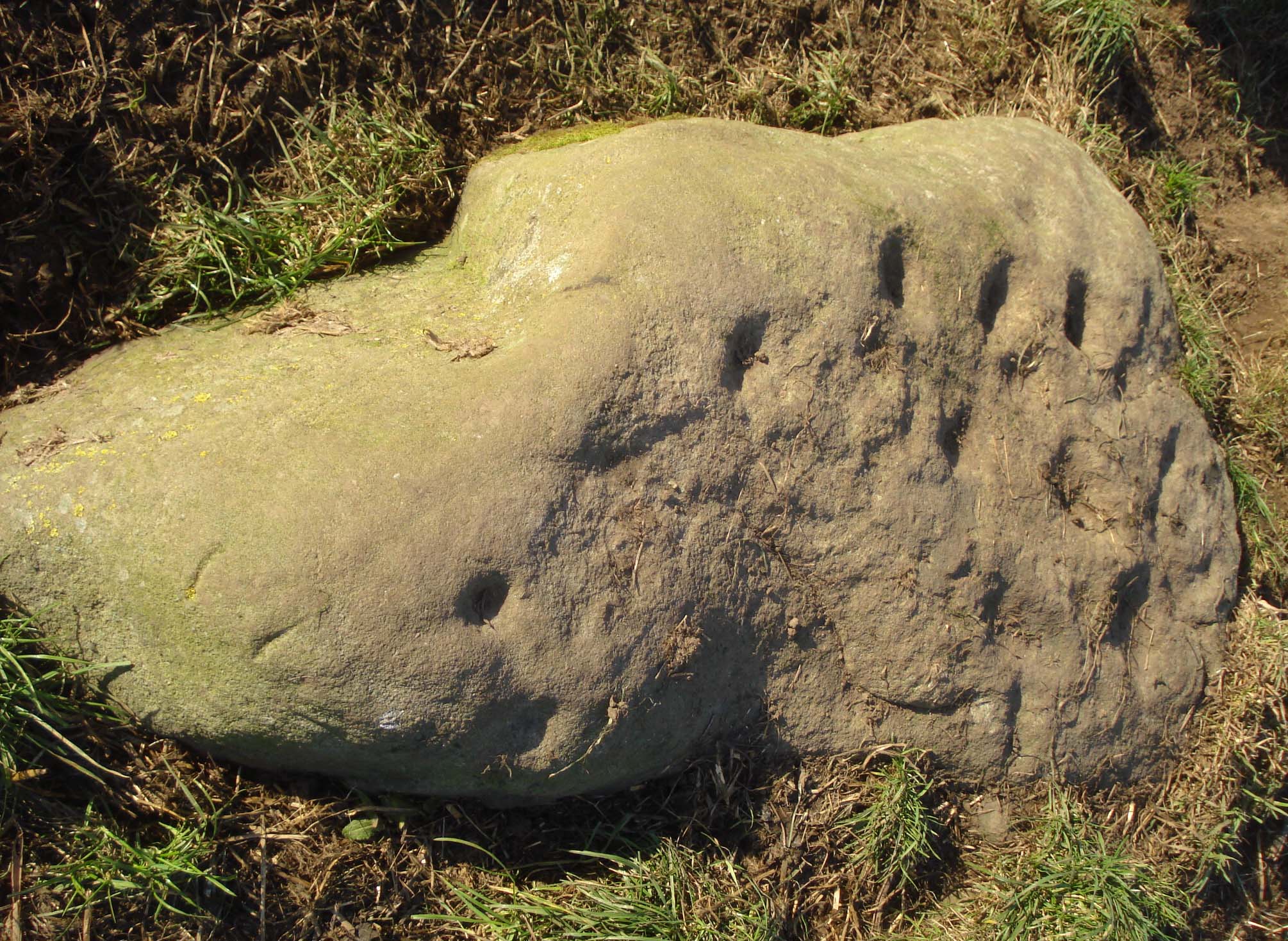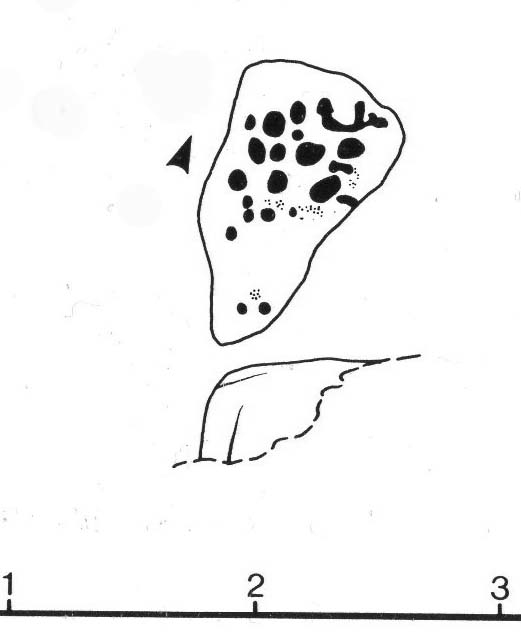Cup-Marked Stone: OS Grid Reference – SE 09373 42410
Also Known as:
- Carving 51 (Hedges)
- Carving 91 (Boughey & Vickerman)

From the expanding village of East Morton, by the school at the west-end of the village, walk up the narrow Street Lane for nearly 600 yards, past the houses, until you reach a footpath on your left that takes you across the fields. Walk along here (following the line of walling) for 250 yards, then, take a sharp left and down the field for 55 yards (50m) until, right beneath the power lines, you’ll find the rock in question.
Archaeology & History
This is one in a small, little-known cluster of petroglyphs on the western outskirts of East Morton. It is located at the base of what are thought to be remnants of Iron Age walling. Carved onto an elongated earthfast stone are a number of very well-preserved cup-marks, with what seems to be a faint carved pecked line running out from one of the southernmost cup-marks and curving back on itself (we could do with a good sketch artist getting us a good drawing of this). You can see this faint line on the far-left side of the stone in Sue’s photo above.

The petroglyph was rediscovered by the northern antiquarian Stuart Feather (1959) in one of his many sojourns exploring the prehistoric remains of the area. In John Hedges’ (1986) survey, the carving was described simply as:
“Triangular smooth grit rock with fairly flat top on which are twenty cups, not all clear, some large and oval, a few grooves.”
Boughey & Vickerman’s survey (2003) made no note of any additional features on the petroglyph.
References:
- Boughey, Keith & Vickerman, E.A., Prehistoric Rock Art of the West Riding, WYAS: Wakefield 2003.
- Feather, Stuart, “Bronze Age Rock Carvings,” in Keighley News, March 7, 1959.
- Hedges, John (ed.), The Carved Rocks on Rombalds Moor, WYMCC: Wakefield 1986.
- Jackson, Sidney, “Massive Walling at East Morton,” in Cartwright Hall Archaeology Group Bulletin, 5:9, 1960.
- Jackson, Sidney, “East Morton Ancient Walls,” in Cartwright Hall Archaeology Group Bulletin, 6:9, 1961.
Acknowledgements: Huge thanks to Sue Patchett for use of her photo.
© Paul Bennett, The Northern Antiquarian
The map could not be loaded. Please contact the site owner.